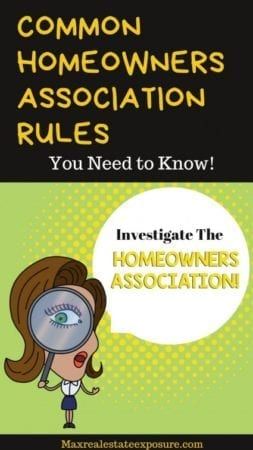A Homeowners Association (HOA) is an organization created by a real estate developer for the purpose of managing a community of houses, townhouses, or condominiums. It is responsible for ensuring that the community is well-maintained, preserving property values, and enforcing certain regulations that govern the neighborhood.
Importance of HOA Regulations
HOA regulations play a crucial role in maintaining the harmony and aesthetics of a neighborhood. They help create standards that contribute to the overall appeal of the community, protect property values, and ensure that everyone abides by the same rules.
Common HOA Regulations
Architectural Guidelines
Architectural guidelines outline the specific requirements and restrictions related to the aesthetics of properties within the community. These guidelines typically dictate the color, materials, style, and size of structures, as well as landscaping and exterior modifications.
Use of Common Areas
HOAs often manage common areas such as parks, playgrounds, swimming pools, or clubhouses. Regulations regarding the use of these areas ensure that all residents can enjoy them safely and responsibly. These rules may include restrictions on noise levels, hours of operation, guest policies, and proper maintenance.
Parking Restrictions
Parking restrictions are commonly enforced by HOAs to maintain orderly parking within the community. Regulations may require residents and guests to park in designated areas, prohibit parking of commercial vehicles or recreational vehicles, and address issues like abandoned vehicles or inoperable vehicles.
Landscaping and Yard Maintenance
HOA regulations often stipulate guidelines for landscaping and yard maintenance to preserve the overall appearance of the neighborhood. This may include requirements for mowing lawns, trimming hedges, removing weeds, and maintaining a certain standard of cleanliness.
Noise and Nuisance Control
HOAs implement regulations to minimize disturbances and promote peace among residents. These rules may restrict excessive noise, such as loud music or construction activities during certain hours. They may also address nuisances such as outdoor storage, improperly stored trash bins, or pet-related issues.
Home Business Restrictions
HOAs may have regulations in place regarding home-based businesses to maintain the residential character of the community. These regulations usually limit the type of businesses that can operate from home, including restrictions on signage, increased traffic, or noise generated.
Enforcement of HOA Regulations
HOA regulations are enforced through a set of established procedures and consequences for non-compliance. Typically, homeowners who violate the regulations receive written warnings and are given an opportunity to rectify the issue. In case of persistent non-compliance, fines may be imposed, and in extreme cases, legal action may be pursued.
Benefits and Challenges of HOA Regulations
Benefits
Promotion of a well-maintained community
Standardization of aesthetic standards
Protection of property values
Management of shared amenities and common areas
Peaceful and harmonious living environment
Challenges
Sometimes viewed as overly restrictive by homeowners
Potential for conflicts between residents and HOA boards
Failure of some HOAs to properly manage funds or maintain transparency
Dependency on HOA boards for decision-making
Conclusion
Homeowners Association regulations are a vital aspect of modern neighborhoods. They serve the purpose of maintaining community standards, safeguarding property values, and ensuring a comfortable living environment for all residents. While there may be challenges and controversies associated with HOA regulations, their overall impact on the quality of life within the community is undeniable.
